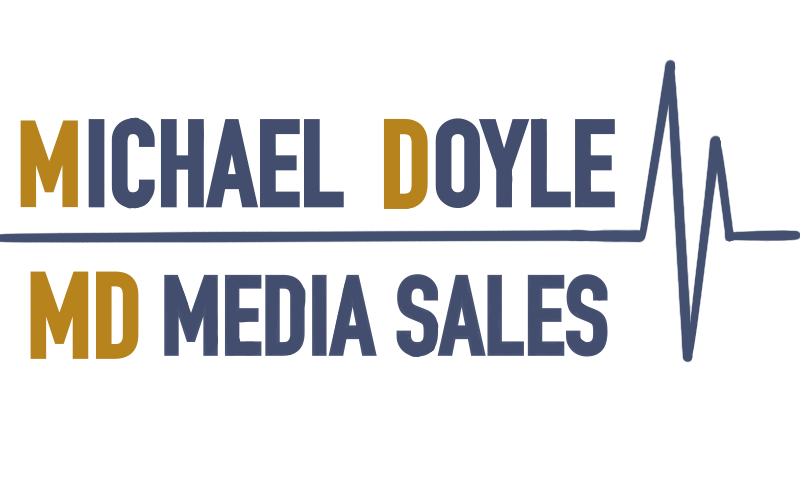If you are in Radio, does this headline scare you?
My Media Daily Newsletter from Media Post had this lead story on Monday.
Triton Unveils Agnostic Audio Ad Marketplace: Pools 100B Broadcast, Podcast, Streaming Impressions
The story talked of how 17 of the top 20 broadcasters including iHeart, the owners of Triton, announced a first of its kind audio exchange to “buy and measure audio.” It’s the holy grail for large audio companies, podcasting companies,larger advertisers and agencies. Let’s look at the reasons why:
1. It’s expensive for larger advertisers to buy audio across the US. Too many different markets for Over the Air Radio, and a difficult process to buy podcasts.
2. Streaming does not have scale. There is no way to reach a significant majority of Americans buying addressable streaming. Yes, it’s easier to buy Spotify than local radio stations. No, Spotify’s addressable audience (those that accept ads) is only a small percentage of the American public. According to Edison’s Share of Ear study, it’s around 2% of Americans. So, Over the Air Radio has reach, but is hard to buy. Streaming is easy to buy, but isn’t addressable, and has no reach.
3. Podcasting has no barrier to entry. With all the titles out there, it’s difficult to buy, and difficult to monetize at scale for larger publishers. Sure the best podcasting advertising is targeted, with great live sounding reads, but with the rapid expansion of titles, and publishers, it’s hard to buy right now.
This solution by Triton offers the possibility that a one stop shop approach could make it easier for advertisers to purchase and measure across platforms, and still get reach that they lack in streaming/podcasting. Ease of purchase - National Reach - cross platform measurement.
So why might this make my friends in Radio nervous?
1. Fear of Price Erosion? Unfortunately, in radio, ease of buying does not translate into improved price performance. It typically is code for lower rates, as in Network. Radio people fear losing even more control in the race to the bottom. That said, more demand on your inventory can mean higher prices, even if this channel is lower priced. You are still in control.
2. No need for local sellers? If advertisers can buy electronically; target who they want by audience and location, what’s the role of local sellers and sales managers. Large company operators love to talk about ‘scale’ and ‘cost reductions.’ Viewed one way, this could cause operators to reduce headcount in sales, management, and local traffic and production.
3. Fear of content cost reductions? If everything is a commodity, based upon CPM (Cost per thousand gross impressions) or CPA (Cost per acquisition), then why would having a great local content matter.
So, what should you do?
1. Have no fear now: Companies love to ‘announce their aspirations,’ often before they really can execute the technology they claim they have.
2. If you create content: Local content and interaction is what advertisers want. They just need a better way to access and buy it. If you are creating great content, you should feel great. If you are ‘mailing it in’ or not engaged in your local community, it’s time to step up your game. Being local means nothing. Being local and great means everything. There is a research question I used to use that you should ask your listeners. If you missed today’s show, do you feel like you may have missed a lot? If you are must listen audio, then you have a future.
3. If you create content: Are you embracing new platforms? Podcasting? If not, why not. Great content crosses platforms. Time and temp reading does not.
4. If you are in sales: Think of this new tool as replacing the ‘national sales’ teams of the past. This approach, especially initially, will be about bringing more revenue, and new clients to our industry. Audio, and specifically radio, have long been under-utilized. By making it easier to buy across companies, audio platforms, and providing new forms of measurement, this announcement can mean more revenue for your stations through this channel. The bulk of Radio’s revenue is local. If you are really engaging and helping local businesses, you are in good shape.
5. If you are in sales: Right now stop and ask yourself, “Am I driving value as a salesperson.” If all you do is quote rates, and input orders, then the answer is no. If you help customers improve their business, create ideas that get results, write copy, generate promotions, get traffic to stores and websites, then this innovation will never hurt you. If you are in the ‘bid business’ of just quoting rates, your future is limited.
The future of radio is bright. Great local content is what advertisers crave. Is your content great? What can you do to make it great?
The role of a great salesperson will not be diminished by technology. Great salespeople can exist at agencies or with local clients.
Great local sellers are a marketing resource for their clients. They ask questions, provide a research resource, sell with ideas, and execute to excellence on behalf of their clients.
Great agency sellers know the account teams, and work on solving client’s issues before the RFP or avail. Avail responders should be scared by this announcement. Great sellers need have no fear.
Change is coming to Radio. Again. Are you preparing or just scared?

